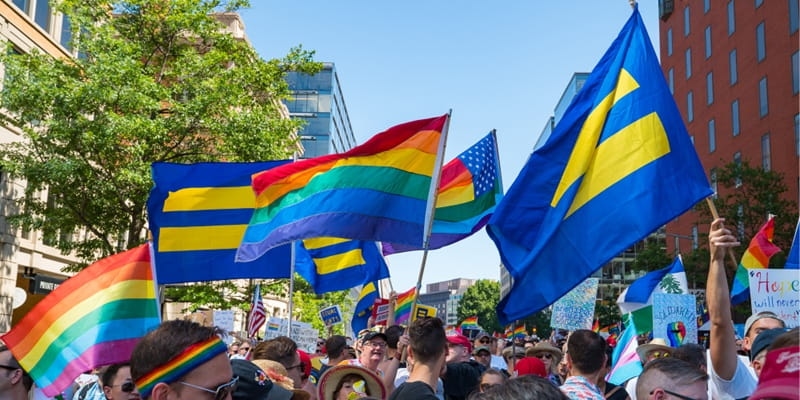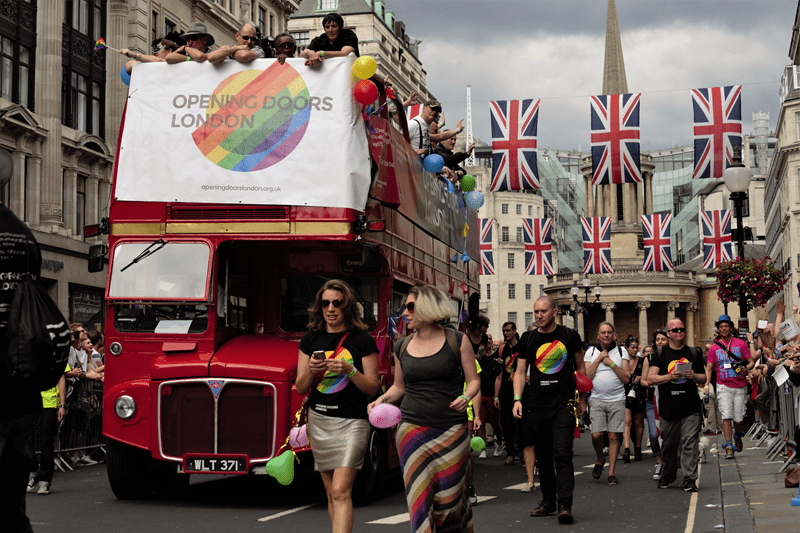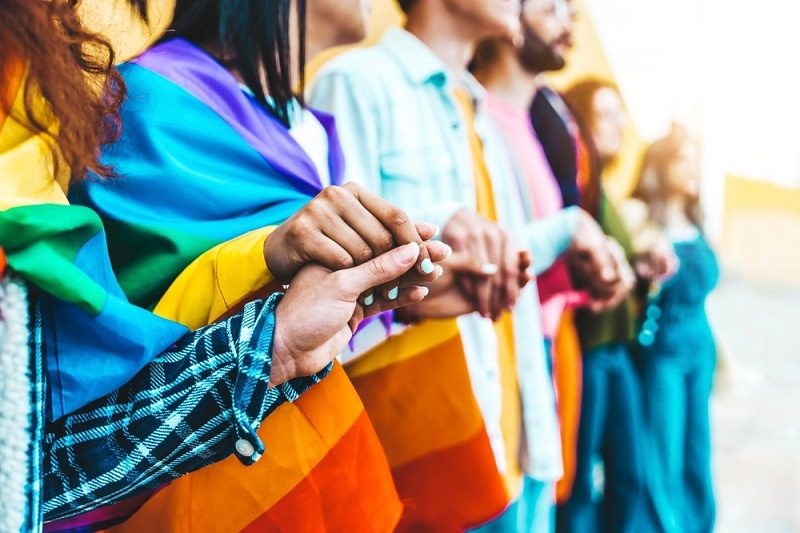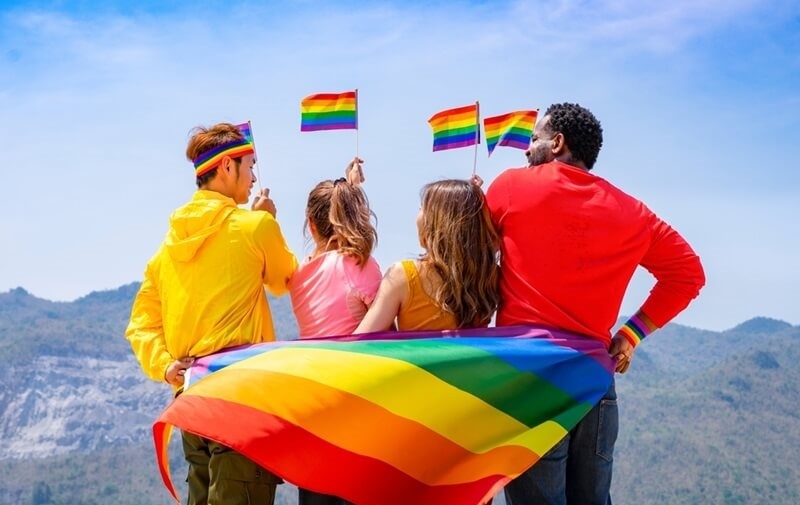Global Movement for Same-Sex Marriage Equality

Same-sex marriage refers to the union between two individuals of the same gender, recognized by law, and granted the same legal rights and obligations as heterosexual marriages. This concept is pivotal in the global equality movement as it embodies the fight for equal rights and recognition for LGBTQ+ individuals.
The legalization and acceptance of same-sex marriage signify a society's commitment to equality, non-discrimination, and human rights. It ensures that all individuals, regardless of their sexual orientation, have the right to marry the person they love and receive the same legal protections and societal recognition as their heterosexual counterparts.
Historical Context: Early Acknowledgement and Evolving Views on Same-Sex Unions
The recognition and debate over same-sex unions date back to medieval Europe. Some scholars argue that the Roman Catholic Church acknowledged same-sex unions during this period, though this claim is contested.
The broader societal acceptance of homosexuality and same-sex unions began to evolve significantly in the late 20th century. This era saw a liberalization of attitudes toward homosexuality, particularly in Western Europe and the United States. As societal views shifted, so did the laws regulating homosexual behavior, setting the stage for the contemporary fight for marriage equality.
Legal Advancements in the United States: Pioneering Decisions and Legislation
In the United States, the journey towards the legalization of same-sex marriage has been marked by significant legal milestones. In 2004, Massachusetts became the first state to legalize same sex marriage, setting a precedent for other states. This landmark decision was followed by various legal battles and legislative actions. The Defense of Marriage Act (DOMA), enacted in 1996, initially defined marriage as a union between one man and one woman, thereby denying federal recognition of same-sex marriages.
However, in 2013, the Supreme Court ruled in United States v. Windsor that DOMA was unconstitutional, leading to federal recognition of same-sex marriages. The culmination of these efforts was the Supreme Court's decision in Obergefell v. Hodges in 2015, which legalized same-sex marriage nationwide, affirming that marriage is a fundamental right guaranteed to all couples, regardless of gender.
Worldwide Legal Status: A Comparative Analysis of Same-Sex Marriage Laws
Globally, the legal status of same-sex marriage varies widely, reflecting diverse cultural, religious, and political landscapes. Countries like the Netherlands, Canada, and Spain were early adopters, legalizing same-sex marriage in the early 2000s. These nations often experienced smoother transitions towards legalization due to more homogeneous cultural or religious contexts.
Conversely, countries with significant religious pluralism or conservative cultural values have faced more contentious debates and slower progress. In some regions, same-sex marriage remains criminalized, while others have adopted civil unions or other forms of legal recognition short of marriage. This global patchwork of laws highlights the ongoing struggle for universal marriage equality.
Religious and Secular Views: Diverse Attitudes Toward Marriage and Sexuality
Religious and secular perspectives on marriage and sexuality play a crucial role in shaping societal attitudes towards same-sex marriage. Major world religions exhibit a wide range of stances. For instance, Orthodox Judaism and most Christian denominations traditionally oppose same-sex marriage, citing sacred texts and religious doctrines.
However, reformist branches within Judaism, certain Protestant denominations, and Unitarian Universalist churches have adopted more inclusive stances. In contrast, secular views often emphasize the principleDDs of equality, human rights, and non-discrimination, advocating for the legal recognition of same-sex marriages regardless of religious doctrine. These varying perspectives underscore the complex interplay between religion, law, and societal norms in the ongoing debate over marriage equality. For those navigating these dynamics, it's important to also consider tips for safe gay sex to ensure health and well-being.
Societal Impact and Public Sentiment
The legalization of same-sex marriage has had a profound effect on societal attitudes and the mental health of LGBTQ+ individuals. Research has shown that legal recognition of same sex marriage fosters a more inclusive and accepting environment, reducing stigma and discrimination. Studies indicate that in countries where same-sex marriage is legalized, there is a noticeable improvement in the mental health of LGBTQ+ individuals.
A study published in JAMA Pediatrics found that the legalization of same-sex marriage in the United States was associated with a significant reduction in suicide attempts among LGBTQ+ youth. The findings suggest that the recognition and validation of their relationships play a crucial role in enhancing their mental well-being.
Public opinion has also evolved significantly in favor of same-sex marriage. Surveys in the United States show a dramatic shift over the past few decades, with support for same-sex marriage rising from about 27% in 1996 to around 70% in 2021. This change reflects broader societal acceptance and the diminishing influence of negative stereotypes and prejudices. The visible support from public figures, celebrities, and influential organizations has further bolstered the acceptance and normalization of same-sex marriages in society.
Obstacles and Resistance
Despite the progress, the legalization of same-sex marriage continues to face significant opposition from various quarters. Religious groups remain one of the most prominent sources of resistance. Many religious institutions argue that same-sex marriage contradicts their doctrinal beliefs about marriage being a union exclusively between a man and a woman. This opposition is rooted in interpretations of sacred texts and long-standing religious traditions.
Cultural norms also play a critical role in the resistance to same-sex marriage. In regions with deeply ingrained conservative values, same-sex marriage is often viewed as a threat to traditional family structures and societal norms. These cultural challenges are particularly evident in countries with strong religious influences and in regions where heterosexual marriage is considered a cornerstone of social stability. In navigating these cultural challenges, it's also crucial to be aware of online dating scams that can affect individuals seeking same-sex relationships.
Addressing these challenges requires multifaceted strategies. Advocacy groups work tirelessly to promote awareness and education, highlighting the human rights aspects of same-sex marriage. Legal battles and political lobbying continue to be crucial in challenging discriminatory laws and practices. In some countries, incremental legal changes, such as the introduction of civil unions, have been used as a stepping stone towards full marriage equality.
Present State and Future Prospects

The current status of same-sex marriage varies widely across the globe. While many countries in Western Europe, North America, and parts of Latin America have fully legalized same-sex marriage, other regions remain resistant. In Africa and Asia, same-sex marriage is still largely prohibited, with some countries even criminalizing same-sex relationships.
Recent legal developments indicate a slow but steady movement towards greater acceptance. For instance, in 2020, Costa Rica became the first Central American country to legalize same-sex marriage. In Asia, Taiwan made headlines in 2019 as the first country in the region to do so. These milestones reflect a growing recognition of LGBTQ+ rights, albeit unevenly distributed across the globe.
Looking forward, the future of same-sex marriage seems cautiously optimistic. As global attitudes continue to shift towards acceptance and inclusivity, it is likely that more countries will follow suit in legalizing same-sex marriage. However, this progress will require sustained efforts from activists, supportive governments, and international human rights organizations to overcome entrenched opposition and cultural barriers.
Final Thoughts
The journey towards global equality in marriage rights has seen remarkable progress, but it is far from complete. The legalization of same-sex marriage has brought significant social benefits, improving public attitudes and the mental health of LGBTQ+ individuals. However, substantial challenges remain, particularly from religious and cultural opposition.
The ongoing efforts to achieve universal recognition of same-sex marriage are crucial in the broader fight for LGBTQ+ rights and equality. Continued advocacy, legal challenges, and public education are essential to ensuring that the progress made thus far extends to every corner of the globe, allowing all individuals the right to marry the person they love.
This content was created by AI






















